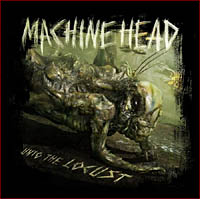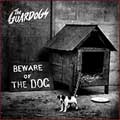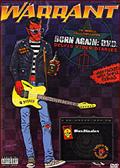#
# XML_node.objet
#
# This object is an XML node representation
#
# /- name (string)
# xml_node --- attributes (array)
# \- children (array) or value (string)
class xml_node {
var $name;
var $attributes = array();
var $children = array();
var $value = "";
function xml_node($name,$attributes,$children=array(),$value="") {
$this->name = $name;
if (is_array($attributes)) {
$this->attributes = $attributes;
}
$this->children = $children;
$this->value = $value;
}
}
#
# xml_tree class
#
# This object parses an XML stream and offers a tree composed by xml_nodes
#
class xml_tree {
var $xml_stream;
var $current_node;
var $root_node;
var $index;
var $value;
function xml_tree() {
$this->root_node = new xml_node("__ROOT_NODE",array());
$this->current_node = $this->root_node;
}
function add_tree($xml_stream) {
# Managing the parser
$this->xml_stream = $xml_stream;
$xml_parser = xml_parser_create();
xml_parser_set_option($xml_parser,XML_OPTION_CASE_FOLDING,0);
xml_parser_set_option($xml_parser,XML_OPTION_SKIP_WHITE,1);
if (!xml_parse_into_struct($xml_parser,$this->xml_stream,$this->value,$this->index)) {
xml_parser_free($xml_parser);
die("XML Parse error");
}
xml_parser_free($xml_parser);
# Now, $this->value and $this->index are informed, we can use the get_node methode.
$tab_result = $this->get_node(0,count($this->value) - 1);
$this->root_node->children[] = $tab_result[0];
$this->current_node = $this->root_node;
}
function get_node($index_start,$index_stop) {
#echo "
\n";
#echo "GET-NODE($index_start,$index_stop)
\n";
# What we are going to return is an array of xml_nodes
$return_tab = array();
# depth is only here to check if everything is all right
$tab_node = $this->value[$index_start];
$depth = $tab_node["level"]-1;
# Now we have to be sure we do not forget a single node
for ($index = $index_start;$index <= $index_stop;$index++) {
#echo "\$index = $index
";
# get the current node
$tab_node = $this->value[$index];
# what type of node is it ?
switch($tab_node["type"]) {
case "complete" :
# Depth integrity check
if ($tab_node["level"] != $depth+1) {
die("ERREUR # contrainte d'intégrité au noeud complet $index, niveau $depth + 1 au lieu de ".$tab_node["level"]);
}
#echo "Noeud complet trouvé position $index TAG ".$tab_node["tag"]."
\n";
# Easy one, no children to manage, only a value...
$return_tab[] = new xml_node($tab_node["tag"],$tab_node["attributes"],"",$tab_node["value"]);
break;
case "open" :
# Depth integrity check
if ($tab_node["level"] != $depth +1 ) {
die("ERREUR # contrainte d'intégrité au noeud ouvert $index, niveau $depth au lieu de ".$tab_node["level"]);
}
# Open tag, we re-use this methode to return its children
# Where is the correspondong close tag ?
$node_index = $this->index[$tab_node["tag"]];
$flipped_node_index = array_flip($node_index);
#echo "This ".$tab_node["tag"]." is at coords ".$flipped_node_index[$index]."
";
$i=1;
do {
$next_index = $node_index[$flipped_node_index[$index] + $i++];
$next_tag=$this->value[$next_index];
}
while ($next_tag["level"]!=$tab_node["level"]);
#echo "Ouverture de noeud détectée pos $index TAG ".$tab_node["tag"]."
\n Parcours jusqu au $next_index
\n";
# good, we can now instanciate our node
$return_tab[] = new xml_node($tab_node["tag"],$tab_node["attributes"],$this->get_node($index+1,$next_index),"");
# As we called the get_node methode, we are sure that nodes have been parsed to the corresponding close tag
$index = $next_index;
break;
case "close" :
# Depth integrity check
if ($tab_node["level"] != $depth ){
die("ERREUR # contrainte d'intégrité au noeud fermé $index, niveau $depth au lieu de ".$tab_node["level"]);
}
#echo "Fermeture de noeud detectée pos $index TAG ".$tab_node["tag"]."
\n";
# This ugly thing is useless because reaching a close tag means that $index==$index_stop but who knows ? =)
# it will be skipped soon
$index = $index_stop;
break;
default:
die("Erreur de type de TAG non déterminé :'".$tab_node["type"]."'");
}
}
# We are out ... returns the array with collected children...
return ($return_tab);
}
# this function browse the xml tree and set the current node to the selected node
function give_node($path) {
if ($path[0]=="/") {
$current_node=$this->root_node;
$path=substr($path,1);
#echo "ABSOLUTE PATH GIVEN=$path
";
}
else {
$current_node = $this->current_node;
}
#echo "PATH GIVEN=$path
";
$tab_path = split("/",$path);
foreach ($tab_path as $node_expr) {
#echo "STUDYING EXPR='$node_expr'
";
$node = $current_node;
$expr_tab = split("\?",$node_expr);
$node_name = $expr_tab[0];
$attr_tab = 0;
if (count($expr_tab)>1) {
##echo "TROUVE AU MOINS UNE CONDITION SUR LES ATTRIBUTS...
";
$attr_expr_tab=split(",",$expr_tab[1]);
$attr_tab=array();
foreach($attr_expr_tab as $attr_expr) {
$attr_split_expr=split("=",$attr_expr);
$attr_tab[$attr_split_expr[0]]=$attr_split_expr[1];
}
}
$last=0;
foreach ($node->children as $children) {
#echo "COMPARING WITH '$children->name'
";
if ($children->name == $node_name) {
##echo "TROUVE NOEUD CORRESPONDANT $node_name
";
if (is_array($attr_tab)) {
$node_attributes = $children->attributes;
foreach ($attr_tab as $key=>$value) {
if ($node_attributes[$key] == $value) {
#echo "ATTRIBUTE & CHANGE CURRENT NODE TO ".$children->name."
";
$current_node = $children;
$last = 1;
}
}
}
else {
##echo "CHILD=".$children->name."
";
#echo "CHANGE CURRENT NODE TO ".$children->name."
";
$current_node = $children;
$last=1;
}
}
if ($last) {
break;
}
}
if (!$last) {
#echo "PATH ERROR $node_name
";
#die("MMmmmh It seems that this file is not a DIA XML format...sorry...");
return 0;
}
}
return $current_node;
}
function browse_tree($path) {
$node = $this->give_node($path);
if (is_object($node)) {
$this->current_node = $node;
return 1;
}
return 0;
}
# this method dumps an html representation of the xml tree
function xml_show($node = "",$level=0,$last=0) {
if ($node=="") {
$node=$this->root_node;
}
if (!is_object($node)) {
die("ERROR : node is not an object");
}
$line="";
for($i=1;$i<=$level;$i++) {
if ((i==$level-1) and ($last)) {
$line.=" ";
}
else {
$line.=" |";
}
if ($i==$level) {
$line.="`-";
}
}
$line.=$node->name;
#echo $line;
$line.="".count($node->children)."";
if (count($node->children)==1) {
$line.=" (".$node->value.")
\n";
echo "$line";
}
else {
$line.="
\n";
echo "$line";
$i=1;
foreach($node->children as $children) {
if ($i==count($node->children)) {
$this->xml_show($children,$level+1,1);
}
else {
$this->xml_show($children,$level+1);
}
$i++;
}
}
}
#END_CLASS
}
MACHINE HEAD (usa) - Unto The Locust (2011)

Label : Roadrunner Records
Sortie du Scud : 21 septembre 2011
Pays : Etats-Unis
Genre : Metal
Type : Album
Playtime : 7 Titres - 47 Mins
MACHINE HEAD fait définitivement partie de ces groupes toujours là où ils sont le moins attendus. Ce constat avait été confirmé en 2007, à la sortie de l’excellent The Blackening, qui avait relancé Robb et sa bande sur le devant de la scène internationale après un passage à vide de quasiment 7 ans (depuis la sortie en 2001 du très casse-couilles Supercharger). Tout fan digne de ce nom est donc en droit d’espérer le meilleur de ce groupe qui est, qu’on le veuille ou nom, devenu un des plus grands noms du Thrash Metal. J’aurais aimé qu’on me prévienne avant que le dernier album de MACHINE HEAD, Unto The Locust, arrive jusqu’à mes oreilles de fan. Le creux entre The Blackening et Unto The Locust est à peu près comparable à celui entre Powerslave et Somewhere In Time. A une différence près : Somewhere In Time était un super bon disque. Avant de me jeter vos cagettes de tomates pourries à la tronche, laissez-moi me justifier. Je vous rassure, ça va être bref.
Tout d’abord, il y’a la fameuse sonate « I Am Hell » : une intro a cappella sur laquelle on peut entendre Robb chanter en latin. Audacieux, mais pas mauvais. Juste après, un foutu gros riff et ce chant apocalyptique… Pour enfin débouler sur une avalanche de notes balancées à 200 à l’heure. Le son de batterie est puissant, les guitares torpillent à tout va, la basse est souple et subtilement mise en avant… Ouais ouais, jusque là, c’est vraiment punchy, carré et efficace. Le MACHINE HEAD qu’on aime quoi. Et une fois cette sonate de 8 minutes 30 terminée, ça dégénère. « Be Still And Know », explicitement inspiré de la scène Heavy des années 80, tombe à plat dès les 2 premières minutes, par son manque d’inspiration, et surtout par un chant et des arrangements mielleux et hyper guimauves. Exemple type : ce pont gnangnan à en pleurer (de désespoir) sur le morceau titre. « This Is The End », je préfère ne pas m’éterniser là dessus tant le résultat est d’une platitude telle que l’on pourrait à juste titre se demander si les mecs de BULLET FOR MY VALENTINE n’auraient pas filé un coup de main à Sir Robb Flynn pour la composition de ce titre penchant dangereusement du côté d’un Metalcore de supermarché pour adolescentes. Mais la palme du ridicule, le trophée de la guimauvitude, la médaille d’or du plantage revient indiscutablement au final « Who We Are ». L’idée de faire chanter les moufflets Flynn et Demmel sur l’intro part d’un bon sentiment, ça peut faire sourire. Sauf que c’est un peu comme si vous dansiez le Gangnam Style sur du NAPALM DEATH : l’un est incompatible avec l’autre. Et inversement. Enfin, il me semble nécessaire de préciser que toutes les compositions de cet album se voulant progressives et inspirées par RUSH font au moins 6 minutes.
Bon, mis à part « I Am Hell », il y’a bien le très chouette et un brin mélancolique « Darkness Within » qui rattrape plus ou moins les dégâts. Morceau assez travaillé, efficace, et sur lequel les connaisseurs admireront les prouesses techniques des quatre zicos, tous aussi carrés les uns que les autres.
Je sais que la chronique et le public ont globalement bien accueilli ce disque, qui personnellement, m’a vraiment gonflé. Aucune idée de ce qu’il a pu se passer dans la tête du grand Robb Flynn et de ses acolytes. Envie de changement, compos qui les tenaient à cœur… On ne le saura jamais. En attendant, j’enterre cet album, et retourne me prendre des baffes à l’aide des Burn My Eyes et The Blackening.
D’un autre côté, une telle prise de risque peut être félicitée. Pas forcément le résultat.
Ajouté : Dimanche 24 Février 2013
Chroniqueur : Hizia
Score :  
Lien en relation: Machine Head Website
Hits: 9842
|














